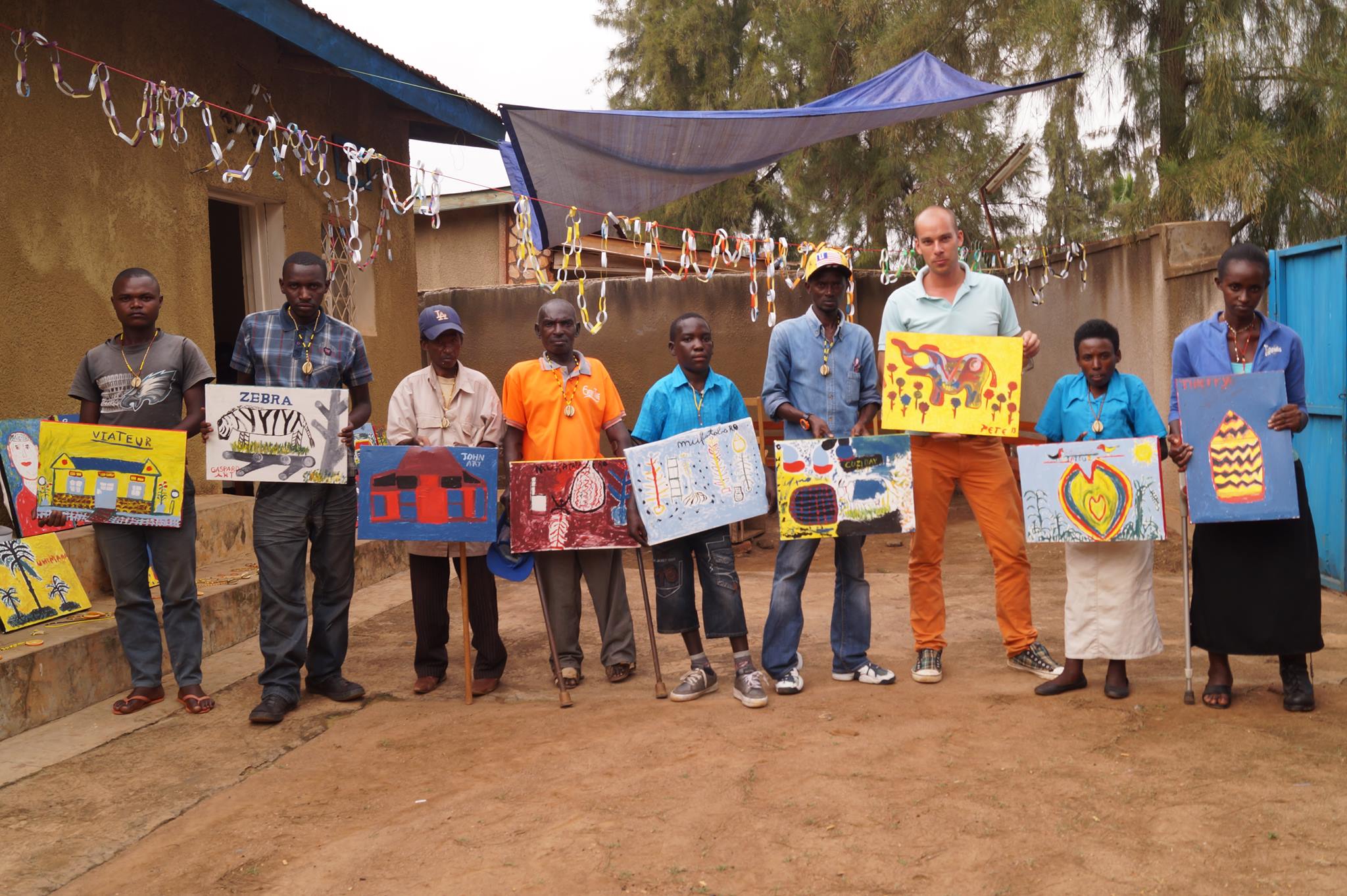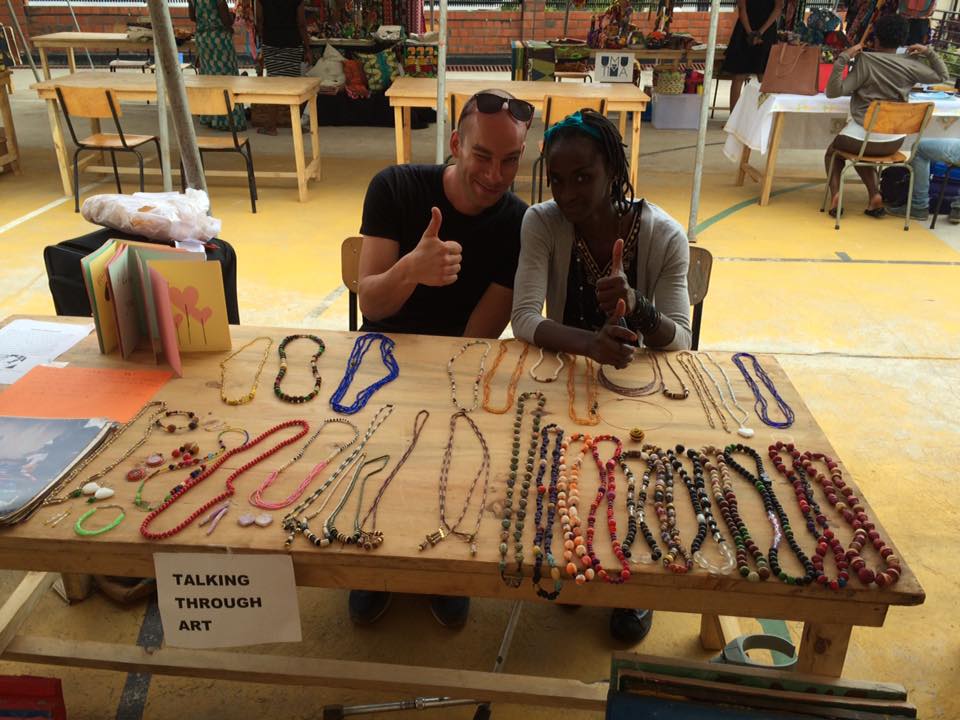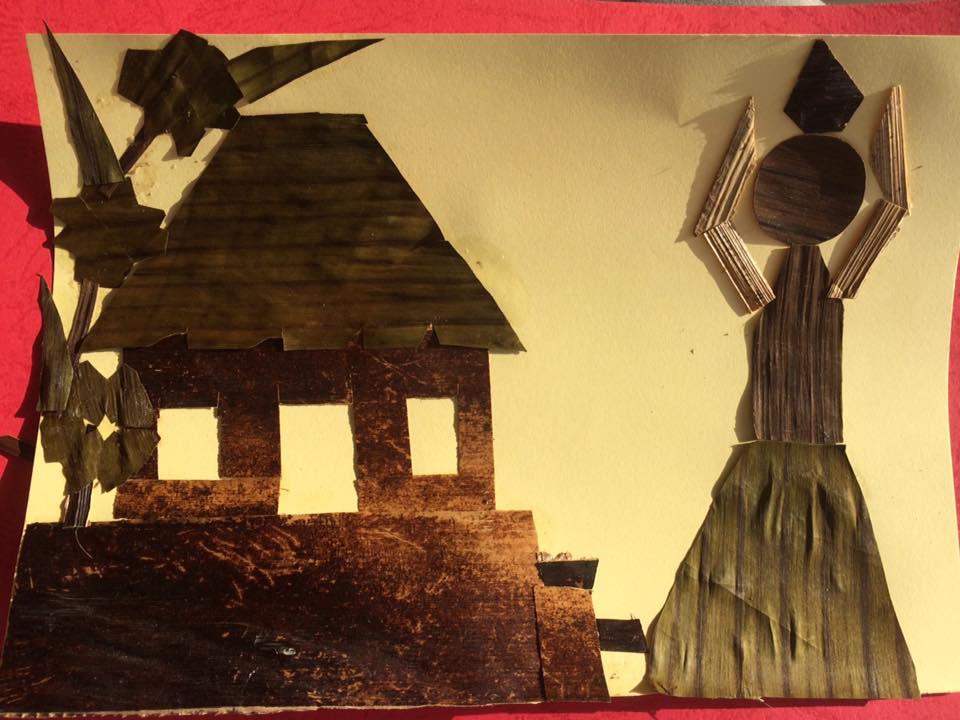“Disability isn’t inability. People can achieve a lot in their lives if given the opportunity to acquire the skill-set and training.”
Talking Through Art is a non-governmental organisation based in Kigali, the capital of Rwanda. The organisation uses art and crafts to create opportunities for people with physical impairments, as well as others surviving on alms.
It works against the widely held presumption in Rwanda that “disability is inability”, and aspires to give people equal opportunities and greater social inclusion. The IPF had the chance to speak to one of its co-founders Petr Kočnar, from the Czech Republic, about their budding initiative and their vision for the future.
The name Talking Through Art is really intriguing. Could you tell us a bit about the organisation and how it was conceptualised?
The people we are targeting are mostly beggars with physical handicaps and disabilities. The idea came up when I was walking in Kigali centre with my friend Janvier, where we happened to pass by some beggars. We stopped and talked to them, asking if they would be interested in trying out painting. Our basic idea was to give them entertainment; we didn’t know that it will lead us to starting a local NGO.
We set up a day for an art workshop and invited around 20 people. On that day, 10 people showed up. The idea was basic – giving them a fulfilling day with fun, entertainment and opportunities for interaction with other people. They didn’t know what to expect. We had prepared canvases, paints and brushes. We even cooked lunch and paid them a bus fare. At the end of the day, they all asked us if they could come again.
Shortly after, we started planning the project and interviewed all of them as a means to facilitate sharing of ideas. We established a multi-faceted project within a few weeks.
“The project was designed to run English classes, art therapy workshops, craft making and interactive sessions on themes such as reproductive health and family planning. It is now a year and a half since [we started] and we’ve come a long way.”
New developments include encouraging specialised skills, for example a six-month vocational course in weaving traditional Rwandan baskets. The participants receive a certificate of appreciation on completing the course, which furthers their chances of employment in companies that export such baskets.
How do you think art can attend to human needs? How do you think the organisation can prove your point of view?
“In our view, art is a part of a larger practice of conducting therapy. It helps people to gain self-confidence and find a creative outlet to express themselves.”
Participants are learning skills useful for their future business and employment-related prospects. Creating Rwandan traditional baskets involves loads of imagination. Our students not only learn how to make the baskets for purposes of utility, but they also learn how to work on the designs and colour combinations.
What do you want your participants to communicate through art?
I would like them to express themselves, to show the world that they are happy even with their physical impairments; that they have hobbies and their share of joy.
“I remember once, I told them to paint something positive, something that they like. They mostly painted a house, a flower or family members.”
I told them to take the painting home and every time we visit them, their respective families talk about the painting; laughing and being proud that they have a piece of art in their small house on the wall.
Can you share a personal story of someone associated with the organisation, which motivates and inspires you?
The story of Emilien, one of the TTA members, comes to my mind. Strong and determined to succeed, Emilien is a young woman paralysed from her waist-down since early childhood. She was only seven years in 1994, at the time of the Rwandan genocide. She sadly lost her parents and her two siblings in those conditions of uncertainty and violence.
Later, Emilien’s brother later found her at an orphanage in Nyamata. She now lives with her aunt in Kigali and dreams of owning a beauty salon one day.
Emilien has been with the project since its inception; she is learning numerous new skills like jewellery making, knitting and crotchet which she can use to support herself financially. She has a positive attitude towards learning, and is a quick learner.
What are the challenges that you have faced in continuing the organisation and its vision-mission, in the context of Rwanda?
Rwanda is a very organised country with zero corruption. All the offices, sector, district and the Rwanda governance Board were very helpful, helping us to change mistakes in our constitution, giving us advice and visiting us to approve of our organisation. They all loved the idea to support anti-begging campaign and to help people with physical impairment.
Current challenges include financial support, and getting sponsors to help us in sustaining our activities. So far, I am the only sponsor getting money from renting my property back in Europe.
“It’s the first time for all of us running an NGO, so we are learning throughout the process, despite such challenges, even in the absence of professional help.”
What are the future plans for the organisation and the participants associated with it?
In the future, we are aiming to make our organisation, and its events more self-sufficient. We hope to achieve this by exporting our products, employing and training as many people as possible. We have also expanded our vision and mission, by beginning to support children with their education and school fees.
For more information about Talking Through Art , and ways to extend support (donation or voluntary involvement), visit their website www.talkingthroughart.org.



